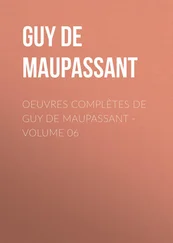
Guy Vanderhaeghe
Homesick
Copyright © 1989 by Guy Vanderhaeghe
I would like to thank the Canada Council and the Saskatchewan Arts Board for their generous financial assistance during the writing of Homesick .
I would also like to express my thanks to my editor Ellen Seligman for her careful and thoughtful labours.
Portions of this novel have previously appeared in the following: a slightly altered version of Chapter 1 was read on CBC Radio’s “Speaking Volumes” and “Aircraft”; Chapter 3 previously appeared in Books in Canada .

An old man lay asleep in his bed. This was his dream:
He is young again, once more an ice-cutter laying up a store of ice for the summer. The Feinrich brothers and he drive their sledges out on to the wide white plain of the lake. The runners hiss on the dry snow, metal bits in the harness shift and clink, leather reins freeze so hard they lie stiff and straight as laths down the horses’ backs. Before them the sky lightens over purple-shadowed, hunch-shouldered hills.
When the sun finally rises, so does the wind, bitter and cutting. On the lake there is no place to escape it, no trees, no sheds, no bluffs to hunker down and hide behind. On the lake there is only flatness, a rushing space that squeezes eyes into a squint.
There it is now, the first long drawn-out sigh of breath tumbling over the hills, the faint breeze setting snow snakes writhing out over the ice and hard-packed drifts to meet them. By fits and starts this wind gathers force, the skirts of coats billow and snap, its fierce touch penetrates every layer of clothing, drives nails of cold through coveralls, trousers, woollen combinations. It raises gooseflesh and tears the manes of the horses into ragged, whipping flags. It pounds the drum-skins of tightly drawn parka hoods.
They halt. The horses stamp on wind-polished ice. Down from the sledge, standing on bare, clean ice he can feel the cold rise through the soles of his boots, seep through stockings, sting toes. Walking over the ice he can sense the yaw and pitch, the tilt, the gentle undulations that cannot be seen but must be felt, things the eye skates over, fails to register. It makes him feel uneasy, unsteady. He thinks of the waves which ran one after another in slow succession to shore until winter laid its dead hand upon their backs, binding up the heaves and swells, arresting motion. He sees the long rivers of fracture, the widely flung tributary cracks.
He chops a hole for the saw. The axe makes a terrible ringing on the ice, a clash like metal striking metal. With each blow, shards of ice leap like sparks in the air. He opens the lake for the ice-cutters, water spurts and gurgles in the wound. By the time he raises the axe above his head, the water splashed on the blade freezes in a glassy sheath.
The saws squeak. The first block is lifted dripping and gleaming. A square of black water opens wide at his feet. His feet are numb with cold.
So he dances. Dances to heat his feet. A polka right there on the huge ballroom floor of the lake, an imaginary partner cradled in the curve of his arm as he whirls round and round, boots clattering and heels flicking, the Feinrichs laughing and clapping time with their cow-hide mitts. Faster and faster he goes. The horses’ nostrils smoke surprise, their eyes roll, their heads jerk as he flashes by. Faster, faster. He throws back his head and sees the last faint stars, the pale silver moon spin with him. Dance with him.
Then he falls. A sudden stunning breath-robbing descent through searing cold and blackness. It blots away moon and stars. A slow, buoyant, bubbling rise which ends with a bump under the ice.
He stares up. Ice. He is under the ice, groping and scrabbling with his nails, searching for the cut-hole, a way out. He snuffles and gulps the thin scraps of air captured between ice and water, kicks his legs frantically. He butts his head madly, desperately against the ice. Water rolls and churns over his shoulders. Out, out, out.
At last, exhausted, he can only hang in the water, suspended in silence and cold. His boots are buckets, pulling heavy on his ankles. His trouser legs balloon with cold and water. It is a silence like he has never heard, a cold like he has never felt. He grows colder by the second and guesses this means he is dying. This is a different kind of cold under the ice, you don’t go numb with it. The colder you get, the more it hurts. The more you die, the more you feel.
Every inch of him aches with it. He is cold through to the sap and marrow of his bones. The quiet is no less terrible.
Then he hears something. Above him, people walk. Crunch, creak go the footsteps.
“I’m down here!” he shouts. “I’m down here!”
They don’t heed his cry. They don’t stop. They pass over.
“For the love of God!” he shouts. “I’m down here! Under the ice!”
The crunch, creak fades away.
His last struggle against the ice begins. It is all rage and foaming water.
Alec Monkman woke in his bed, pillowcase bunched in an arthritic fist. Despite the violence of his grip, the ache and throb of skewed and swollen knuckles was lost beneath all the rest of it. Yet the pain was there, lurking deeper than bone, deep as the deepest waters of sleep from which he had fought upward in terror, cold and shivering, only to find more ice.
Monkman kept his eyes fixed on the feeble, milky light across the bedroom; stars hedged round by a window-frame. Underneath the ice he had sought for some sign of light, a glimmer to guide him.
Jesus Christ Almighty, maybe one of these nights he will drown and it will be left to Stutz to discover him in the morning, deader than Joe Cunt’s dog.
He had never had any affection for water. Strange then that his first job should have been building bridges. Not that he had had any choice; his Dad had got him the job. His father had work on a bridge construction crew and got him a place by lying about his age. He was fourteen. It was his father’s opinion that children ought not to get accustomed to living off their parents’ charity, and that fourteen was just about the proper weaning age. So Alec had been put to work driving a gravel wagon two months after the decisive birthday.
Sitting on the seat of that wagon he had seen his first man killed. He had glanced up and seen the half-breed fall from a trestle, sixty feet down to the river. The breed had looked like a spider dropping on a spinner, arms and legs splayed out and working like crazy. The men said he knocked himself out because of the way he fell, face down and on his belly. It kicked the air out of his lungs and did him in, stole any chance of survival he had. Nobody could reach him out in the river, the race of water was too strong, sweeping him around the bend and out of sight before anyone could move.
They had unhitched Alec’s team and he and three others had chased down the river after him on the horses, only catching up when the body hooked on a snag. They found him with the white water tumbling over his shoulders and his long black Indian hair fanned out from his skull, rippling and waving in the current.
He had never forgotten how water swallowed you. Never completely trusted it, even when it was eighteen inches thick and solid. One winter was all he could bring himself to cut ice.
Stutz knew about the dream. He had asked Stutz what he made of it. “It’s the arthritis,” said Stutz. “It makes you ache in your sleep and you dream the cold.”
Читать дальше














